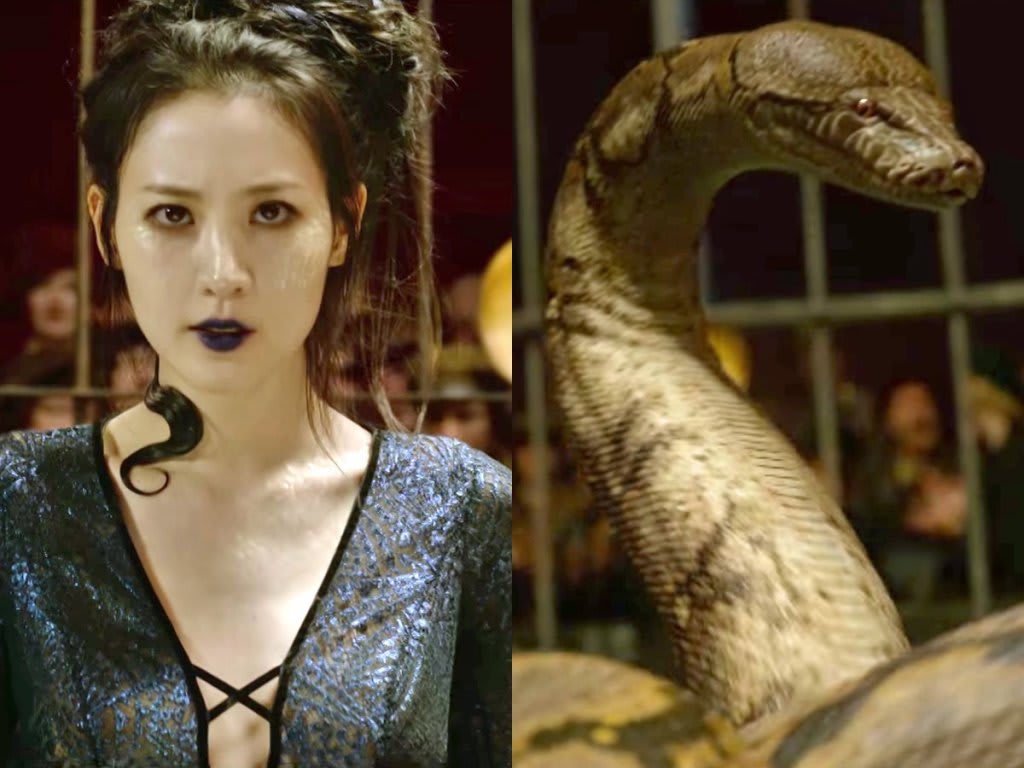JK Rowling Should Stop Talking About Harry Potter
Oh my god, please stop.

Harry Potter was one of those iconic childhood experiences that seemed to shape us as individuals and as society as a whole. It instilled in me a grand sense of wonder that I had not felt often in my youth. Reading became my favorite past time, and I found some friends over my love for the series. When Pottermore came out, I was one of the first to sign up for its beta premiere, and I frequently use the Hogwarts Housing system as a Myers-Briggs/astrology shorthand to analyze people and characters.
Not only that, but Young Adult and even children's books were considered popular and worth merit. John Greene gained steam as a writer for YA literature, rather than simply fiction. As we later saw, popular genres like paranormal romance and dystopia emerged in the YA in hits like Twilight and The Hunger Games. Since Harry Potter included elements of interspecies romance and intrigue (specifically in Bill and Fleur's relationship, but also with Hagrid to an extent), as well as a glimpse into a fascist regime, it's easy to assume that Harry Potter influenced many of these stories.
I'm saying this as a fan of Harry Potter. To someone who aspired to write fiction as a child, Rowling was an icon. The series affected me in a major way, and I looked up to Rowling because she was a woman who had made it while seeming like a great person.
Nowadays, my love for Harry Potter is beginning to wane because, it seems, JK Rowling doesn't know when to call it quits.
Two Case Studies on How to Kill Your Craft
I somewhat fell out of love with fantasy and reading for a while, but I began exploring podcasts when I found Welcome to Night Vale. Though I'm woefully behind, it's surreal comedy and intensive world building ended up leading me to The Adventure Zone.
The Adventure Zone started as a Dungeons & Dragons game among a dad and his three adult sons, who also happen to be somewhat famous podcasting comedians. What starts out as an outlet for dick jokes and funny accents quickly gained steam as a grand, epic, and daresay heartfelt story about the bonds we make with others.
Roughly halfway through the first campaign (TAZ: Balance), Griffin McElroy, the Game Master/storyteller of the podcast, announced that it was ending.
"This storyline has an end," he said in an episode of TAZ. "I don't know if we talked about that—that might be rough for folks to hear, but there is an end to what we're doing in this universe...There is just no way we could keep this thing going in perpetuity because whatever ending that would have would be disappointing."
At first, I was sad, because I had grown to really love the characters and the world the McElroys built with their words.
They were right, though.
Aside from only a few tenuously canon live shows and a graphic novel that simply adapts the story to another medium, the McElroys haven't added any new lore or stories to Balance, and it stays stronger because of that. The creators it was an experience and a memory that I can look back on fondly.
There was a second series that hit all the marks for me as an older teen—Supernatural. Yes, the CW show. The story was great, and I loved the interpretations of Biblical/Christian mythology that supported the main story between brothers. The simple A/B/C plot lines also made it one of the more accessible stories to analyze and begin writing about as a teen.
I think most people can agree that it hit its apex in its fifth season, and while there can be standouts in later episodes, the storytelling isn't as tight and cohesive as those first five seasons were. Supernatural is now in its fourteenth season, and pretty much everyone that I met in the fandom either no longer participates or goes back to revisit the older episodes instead. They've steadily declined in viewership over the years, with the lowest point recorded in Season 13, with 1.24 million viewers.
One of the hard lessons I've learned as a story lover is that some stories must come to a close, and it's far better to let it end and relive the memory than watch it slowly drag itself to mediocrity.
JK Rowling Adding to a Finished Series
Rowling has done this for a while. Every time she does, it feels a little like she's trying to make headlines again with controversial opinions.
Only several months after releasing the final book to the Harry Potter series, she announced that Dumbledore was gay. Which lead to... mixed response.
Putting homophobic rhetoric aside, there remains a debate on just how beneficial this kind of posthumous representation is for LGBT+ people. And with the recent revelation that the newest Fantastic Beasts movie will not address Dumbledore's sexuality, one may wonder how much of an ally someone is when they actively closet their only LGBT+ character in their work. This kind of author reveal feels more like queer baiting than representation.
In 2014, she announced that Hermione should have married Harry, not Ron. This, of course, vindicated a lot of fans and enraged a lot of others. But then again, the emergence of The Cursed Child, which Rowling at least oversaw, doesn't look like Ron and Hermione are on the verge of divorce, so it seems that their relationship is safe in canon.
However, it's odd to see an author insert themselves in shipping debate like this. For what reason? To get Harry Potter in the headlines again? It doesn't necessarily add anything to the story—just an interpretation many fans had for years.
Speaking of Harry Potter and the Cursed Child, most can agree that what it added to the world of Harry Potter is questionable at best. Voldemort and Bellatrix having a child together? Harry Potter, after spending years of abuse and neglect from the Dursleys, telling his son that he doesn't want him? There's not a lot of good in the story, and it diminishes the legacy the original seven books brought with them.
In 2016, she again made headlines when she tried to include Native Americans in her History of Magic digital collection, meeting a good amount of criticism. Highlights include appropriating Navajo spirituality in her fantasy world, as well as the white savior idea behind teaching Native Americans how to use a wand because it's superior magic.
And now, in 2018, she's revealed that Nagini, the snake, is actually an Asian woman cursed to transform into a snake. Rowling has been known to be a little ignorant in writing Asian characters (take Cho Chang—a Chinese character with two Korean surnames, for instance), and a lot of people are at least raising eyebrows.
That she seems to see all Asian ethnicities and cultures as interchangeable (While Rowling refers to Indonesian mythology as the inspiration for Nagini's name, the actress playing Nagini is clearly East Asian and specifically, Korean), that she makes a non-white character change permanently into an animal (a common and questionable trope), and that Nagini remains subservient to a fantasy Nazi, including having part of his soul in his body.
Eventually, you have to wonder why she's doing this.
Why is she doing this?
It's hard to say. I find it interesting that this revelation, on top of being a promotion to Fantastic Beasts, also emerges within the same month as her new novel, Lethal White, though she doesn't seem to be using this as promotional material.
I in no way believe that she's been sitting on this for 20 years—the reveal that Nagini was actually a woman, but that someone would have to kill her anyway, would be a very crunchy and interesting thing to explore in the original text. Instead, Neville slays Nagini and we cheer for her death.
This seems to be a tactic to get people reinvested in Harry's story. Which makes sense—it's been over 20 years since she first published Harry Potter and the Philosopher's Stone, and over a decade since Deathly Hallows was published. Introducing new, potentially controversial information gets talked about. People begin rereading the stories, watching/reading the new content released, and Pottermania begins again.
There are two problems at the center of this: The masking capability of nostalgia, and the forceful insertion of potentially more "woke" material.
The truth is that not all components of a story ages well. Fiction often fits with the ethos of its day—with some more progressive than others. Readers today, who are more aware than ever of white nationalism and neo-nazism on the rise, may raise eyebrows at some of the choices Rowling made. Namely, the suspiciously pro-slavery argument made during Hermione's S.P.E.W. arc (made somehow even worse if you believe Hermione to be Black), as well as the questionably antisemitic description of the goblins (bankers, untrustworthy, beady eyes, hook noses, etc).
These parts may not be otherwise discussed if people didn't go back to read Harry Potter and think, "That's weird and kind of uncomfortable." Nostalgia has a Pollyanna effect on people—bad parts and parts that no longer jive with our current state of ethics are wiped under the rug lest they are brought up again. At that point, your original memory may start to sour.
The second problem is posthumously adding diversity to her works. There are a handful of people of color in the original text, but other than that, most of the characters are implied or confirmed to be straight, cis, white, and culturally Christian. It isn't necessarily problematic in itself—not every story has to be diverse, and admittedly, JK Rowling leaves enough of the story open that readers can interpret characters however they choose.
However, adding marginalized identities to your story as an aside or afterthought feels careless. If you didn't initially intend to make a character a marginalized identity or specify it in the text, announcing it after the fact is less positive representation and more attempting to cash in on today's more progressive pop culture and receive acknowledgements and "brownie points" for being "woke."
A better response might be to write more diverse stories in the future rather than shoehorn representation into a finished piece. And she might! I haven't read any of her adult fiction. If she has, then good for her.
But please. Leave Harry Potter to the fans. After the Fantastic Beasts series concludes, it may finally be time to retire the quill and ink on this story.
About the Creator
Haley Booker-Lauridson
Haley is a passionate freelance writer who enjoys exploring a multitude of topics, from culture to education.






Comments
There are no comments for this story
Be the first to respond and start the conversation.